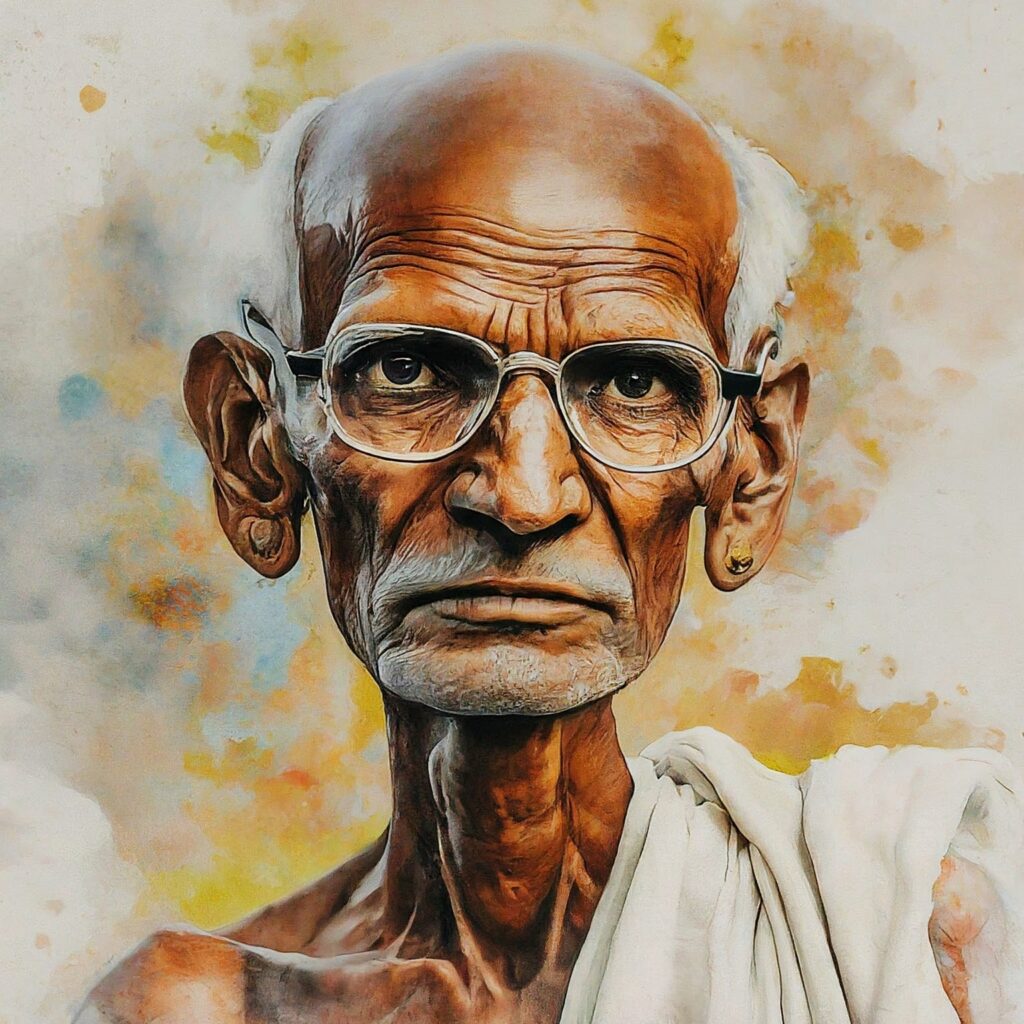Today, we’re discussing the fifth beatitude: “Blessed are the merciful, for they shall obtain mercy.”
This is the sixth post in a series on The Beatitudes, 8 keys to happiness that Jesus gifted to the world in his Sermon on the Mount. This series is meant to be read in order, so if you have not read the first five, I suggest you do so and then circle back to this one.
As far as the Beatitudes go, this one seems fairly straightforward. Of course the merciful shall obtain mercy. When you’re quick to forgive others, usually others are willing to cut you a bit more slack in return.
But don’t stop there! The Beatitudes always call for greater reflection. They also are focused on states of difficulty in life. So, in this post we’re going to explore:
- What it means to be merciful, not just in a particular situation but as a way of life
- How to be merciful to ourselves and others
- What to do when it’s difficult to be merciful
- The relationship between human mercy and Divine Mercy
- How the attainment of mercy can be a key to happiness
What Does It Mean To Be Merciful?
Mercy is often associated with forgiveness, but it’s much more than that. Yes, the act of forgiveness is an expression of mercy. But this action springs forth from an inner reserve of kindness and compassion. Mercy is a steadfast willingness to see the humanity in others, even when they may have hurt us. If we maintain that attitude as a way of life, it’s easier to not only forgive those who may not seem to deserve it but to do so because you have compassion for others. You understand why this other person may have crossed you. You can put yourself in their shoes, understanding how they might feel. Mercy in this case comes from a place of thinking about what another person needs most in that moment rather than the craving for vengeance that you think will make you feel better (spoiler alert: it won’t).
Mercy makes redemption possible. It’s not about dismissing harm, but about offering a path towards healing. Healing for yourself and the person being forgiven. This is really important to understand. You’re not just rolling over and letting others have their way with you. This is a common misconception of many of the character traits corresponding to the Beatitudes: poverty, meekness, mercy. In the context of the Beatitudes, these are positions of strength rather than weakness. As Mahatma Gandhi was fond of saying, “The weak can never forgive. Forgiveness is the attribute of the strong.” In our society, we often glorify revenge and the holding of grudges. We see mercy as weakness or letting someone ‘get away’ with something. But in reality, mercy is one of the greatest acts of courage and strength a person can show.

How To Be Merciful
When someone wrongs you in some way, you have a choice: do you show mercy and forgive, or not?
That’s why forgiveness is an attribute of the strong. When you’ve been wronged, the ball is in your court. It’s your move. You know it and the other person knows it. It’s your decision. So, what will you do?
In those moments, you may feel angry, resentful, deeply wounded. Because you are liable to be feeling such strong emotions in these moments, it’s hard to make a clear-headed decision about whether or not to show the other person mercy. That’s why you need to learn how to become a merciful person. Cultivating mercy as a character trait means you don’t have to decide what to do in those moments from a purely emotional perspective; your compass will be pointing you in the right direction, a direction that will lead to healing for you and the other person/people.
Humility
Humility is an essential trait for cultivating and expressing mercy. It’s easy to see why having a big ego can get in the way of being merciful. If you have a very high opinion of yourself, you might be a little extra appalled when someone wrongs you. And if you don’t strike back, people might think you’re weak, right? They might start to see you as less awesome than you really are.
But the opposite kind of personality can be just as much of a problem. If you don’t love or respect yourself, you might not enact vengeance on people who wrong you, but that’s not necessarily coming from a place of mercy. Instead, it’s coming from a place of low self-esteem. You don’t like that the other person wronged you, but you also don’t like confrontation, so you just avoid the question of forgiveness altogether. Maybe on some level you even believe that you deserve to be treated poorly like that. Or, perhaps you do want to get even with that person but you’re just too timid to do so. So your resentment hangs around, stewing within you and creating a toxic mess that you’ll have to deal with at some point down the line.
You might not realize it, but humility is equally helpful in combating this second type of behavior as it is the first. C.S. Lewis says, “Humility isn’t thinking less of yourself, it’s thinking of yourself less.” If you find yourself being excessively harsh on yourself, you’re denying yourself mercy and, quite frankly, being a little self-centered.
When we’re working toward becoming merciful, we need to remember to show kindness and forgive ourselves as well as others.
Compassion And Kindness For All
There’s a Greek to English translation of this Beatitude that I love. It goes, “Happy are those moved to help someone in need, they will experience and be shown the comfort they give.”
In Buddhism, mercy is embodied in the practice of compassion and loving-kindness towards all beings. In Judaism, Mercy is seen as a divine attribute on the Tree of Life.
An inspired selfless act, one that’s driven by genuine empathy and compassion, is about extending a hand to those who are suffering, not out of pity or obligation, but out of a sincere desire to alleviate their pain. When you show that kind of mercy, you forget yourself. You are thinking of yourself less. And you don’t expect anything in return.
What happens next is that you do receive something in return: you receive a sense of comfort. You are not being rewarded for good behavior. There is no cosmic being judging your behavior as good or bad by human moral standards. It’s not like you turn to someone and say “Okay, I forgive you—now can I have my heavenly prize for doing the ‘right’ thing?”
That’s definitely not how any of this works. It’s not like there’s a cause-and-effect relationship between your decision to forgive and the sense of comfort you receive. Rather, these are two things that spring forth from the same source. The kind of mercy that comes from a place of loving compassion is not just a decision. It’s a state of being that you inhabit—a state that is close to God because this kind of loving mercy comes from God. When you show someone loving mercy, you feel comforted because, in that moment, you are close to God.
Let Go Of Holding A Grudge
If you’re holding a grudge toward someone, if you feel resentful on some level, then you cannot enter into that comforting state of closeness to God. You cannot receive the goodness that the Universe is trying to give you right now. Your bitterness is like a dam, holding back the river of love that God is pouring into your life at this very moment. So learning to let go of holding a grudge is a very important step along the path of merciful living. The mystical law of the fifth Beatitude says you cannot hold onto pain and accept love at the same time. It’s impossible. If you’re stingy with mercy towards others, it’s like you’re blocking the flow of Divine Mercy towards yourself.
So, what to do? Well, the 8th century Muslim theologian Ibn al-Mubarak recommends one practice that he found particularly helpful.
“Every night, before I go to sleep, I forgive whoever has wronged me. I remove any bad feelings towards anyone from my heart.”
Ibn al-Mubarak, 8th century Muslim theologian

This may seem easier said than done, but as with any spiritual practice, the key is practice.
Start small. You may not be ready to forgive the person responsible for some deep-seated trauma. So, just start by making a conscious effort tonight to forgive that person who let the elevator door close on you. Maybe they were just in a hurry. Maybe they had something eating away at their mind and totally spaced out—a momentary innocent lapse in courteous behavior. Whatever minor transgression befell you today, just look at it with empathy from the perspective of the transgressor. Try to forgive them from a place of loving mercy. Over time, it will get easier to carry out more courageous expressions of mercy.
Take Countermeasures When Necessary
Don’t fall into black and white thinking here. The commitment to being a more merciful person does not mean you’ll just let people do whatever they want and excuse their actions without consequence. Even His Holiness the 14th Dalai Lama, one of the most merciful and peace-loving people on the planet knows that this is a very misguided idea of mercy. As he said in response to the killing of Osama bin Laden in 2011 by the US military, “Forgiveness doesn’t mean forget what happened […] If something is serious and it is necessary to take counter-measures, you have to take counter-measures.”
This doesn’t mean get out of your car and kill the person who cut you off in traffic. But if someone’s behavior is repeatedly threatening the wellbeing of yourself or others, you need to do what you can to put a stop to that behavior. You can still forgive, but sometimes additional action needs to be taken.
Divine Mercy
One of the things you may commonly hear is that justice must be tempered with mercy, but these aren’t two aspects that we need to keep in balance. Mercy is the Divine Justice. It’s like the sunlight that warms the earth, causing seeds to germinate and plants to grow. Mercy is not a flimsy act of kindness; it’s a fundamental aspect of cosmic justice. Without mercy, justice becomes cold and unyielding, punishing rather than setting all things right.
Scriptures from across religions often speak of a parallel between Divine Mercy and Earthly acts of forgiveness, such as this Bible verse.
“For if you forgive other people when they sin against you, your heavenly Father will also forgive you. But if you do not forgive others their sins, your Father will not forgive your sins.”
Matthew 6:14-15
We don’t need to look at this literally, as if there’s an omnipotent person judging your behaviors and rewarding you or condemning you based on how quick you are to forgive others. From a mystical perspective, the message is, once again, you cannot receive Divine Mercy unless you allow yourself to become a proper vessel for it by embracing humility, kindness, and compassion, and purging yourself of grudges and feelings of resentment. Neil Douglas Klotz beautifully translates this Beatitude from Aramaic as, “Blessed are those who, from their inner wombs, birth mercy; they shall feel its warm arms embrace them.”
Blessed Are The Merciful Who Receive Divine Mercy
Have you ever felt the warm embrace of Divine Mercy around you? Have you ever experienced a moment in your life where you felt incredibly fortunate, lucky, and blessed, even though you believed you didn’t deserve such an outcome? Experiencing Divine Mercy is like basking in the warm, golden light of the morning sun after the coldest, darkest night. It’s a joy that is pure, radiant. You know that you’re valued and that you matter, despite your mistakes, despite your past. There’s a beautiful Islamic parable that illustrates this kind of Divine Mercy.
“A monk worshiped Allah in his hermitage for sixty years. Then a woman came and laid down at his side, so he laid down with her and was intimate (in adultery) with her for six nights. Feeling regretful, he fled. He arrived at a mosque and sought refuge in it and remained inside for three days without eating anything. He was given a loaf of bread, so he broke it into two halves and gave half to the (hungry) man on his right and half to the (hungry) man on his left. Allah sent to him the angel of death to take hold of his soul. The angel placed his deeds of sixty years upon one side of the scale and he placed the six nights on the other side, yet the six nights outweighed it. Then, he placed the loaf of bread on the scale and it outweighed the six nights.”

Hope
Divine Mercy is seeing a lighthouse in the middle of a turbulent sea. It’s sudden hope. No matter how far you’ve strayed, no matter how lost you feel, there’s a light leading you back home. A light radiating forgiveness and unconditional love. That is the blessing that the merciful receive.
The contemporary mystic Cynthia Bourgeault articulates it this way. She says,
“Hope’s home is at the innermost point in us, and in all things. It is a quality of aliveness. It does not come at the end, as the feeling that results from a happy outcome. Rather, it lies at the beginning, as a pulse of truth that sends us forth. When our innermost being is attuned to this pulse it will send us forth in hope, regardless of the physical circumstances of our lives. Hope fills us with the strength to stay present, to abide in the flow of the Mercy no matter what outer storms assail us. It is entered always and only through surrender; that is, through the willingness to let go of everything we are presently clinging to. And yet when we enter it, it enters us and fills us with its own life — a quiet strength beyond anything we have ever known.”
Cynthia Bourgeault, Episcopal priest, mystic, and writer
So, are you strong enough to be that beacon of hope for someone else? And are you merciful enough to forgive yourself and receive the light of hope when you need it? Can you draw upon the lessons of the fifth Beatitude to let the Mercy of God flow into your life?
Paragraph
Paragraph



